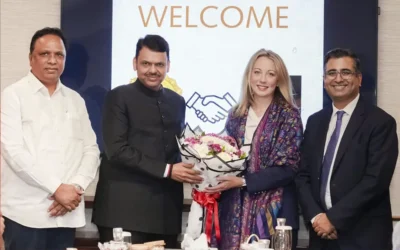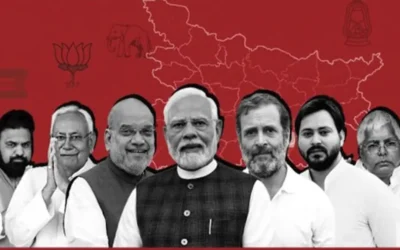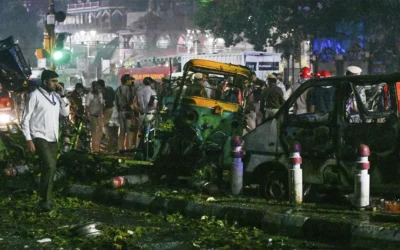On August 20, the Lok Sabha passed the Promotion and Regulation of Online Gaming Bill, 2025 after just seven minutes of discussion. The Rajya Sabha passed it the next day, and the Bill became law after receiving Presidential Assent on August 22.
Government data suggests that Indians are losing nearly ₹15,000 crore every year due to “Real Money Games” (RMGs). The World Health Organization (WHO) has linked RMGs to compulsive behaviour, psychological distress, financial hardship, and disruption of family life. Reflecting these dangers, 32 cases of suicide attributed to online gaming addiction have been reported in Karnataka in the past 31 months.
On the other hand, the RMG industry claims that this ban may threaten more than two lakh jobs across 400+ companies.
What are the three segments of online games?
The Act proposes three categories for online games — e-sports, social gaming, and RMGs. While it aims to promote e-sports and social gaming segments, it seeks to ban all forms of RMGs and their advertisements.
The Act defines an online money game as:
- Any online game, whether based on skill, chance, or both,
- Played after a fee payment or with an expectation of winning money or other stakes (including credits, coins, tokens, virtual money, etc., convertible into money).
Under this definition, popular games like Poker, Rummy, Fantasy Cricket, and Ludo fall under RMGs. Several such platforms are endorsed by celebrities — Ranbir Kapoor and Aamir Khan (Dream11), M.S. Dhoni (WinZo), Hrithik Roshan (RummyCircle), and Sourav Ganguly (My11Circle).
For e-sports, the Act defines them as games recognised under the National Sports Governance Act, 2025 and registered with the proposed regulatory authority. They may involve a registration or participation fee, with performance-based prize money. Examples include Grand Theft Auto and Call of Duty.
Social gaming, while not legally defined, is included in the broader category of online games played on electronic or digital devices and operated as software through the Internet. Under Section 4, the government can facilitate the development and availability of online social games for recreational and educational purposes.
What does it say about regulation?
- Offering online money games, or engaging in transactions or authorisations of funds for them, will be punishable with up to three years of imprisonment, a fine of up to ₹1 crore, or both.
- Unlawful advertisement of money games will attract up to two years of imprisonment, a fine of up to ₹50 lakh, or both.
- Under the Bharatiya Nagarik Suraksha Sanhita (BNSS), 2023, these offences are cognisable and non-bailable.
- The government has tasked CERT-IN (Indian Computer Emergency Response Team) with blocking or disabling apps that continue to provide banned money gaming services. Interpol may also be roped in to act against offshore operators.
- Importantly, IT Minister Ashwani Vaishnaw clarified that no penal action for players has been codified.
The Act empowers the Centre to set up a regulatory authority to recognise, categorise, and register online games.
In 2023, the IT Ministry had already amended the Information Technology (Intermediary Guidelines and Digital Media Ethics Code) Amendment Rules, 2021, treating online gaming firms like intermediaries. These rules required gaming companies to:
- Comply with KYC norms,
- Implement parental access controls,
- Provide age-rating mechanisms based on content type.
The new Act, however, makes no provisions to restrict minors from playing social games or e-sports. It also allows budget allocations from the Consolidated Fund of India to promote online social gaming.
Why has the government brought in the Act?
Mr. Vaishnaw said the law was a response to user complaints of losing thousands of crores on RMGs, stressing that this was not a knee-jerk reaction. He claimed that there is irrefutable proof that online gaming algorithms do not allow any user to emerge as a net winner in the long run.
- A Parliamentary Panel Report (2023) stated that gaming portals had become channels for funding terror activities.
- A 2022 Financial Intelligence Report revealed online gaming firms evaded tax of ₹2,000 crore.
- The Defence Ministry’s think tank found that the Chinese app FIEWIN defrauded Indian users of ₹400 crore, with the ED uncovering evidence of mule accounts and cryptocurrency wallets.
- The government also reported ₹30,000 crore GST tax evasion by gaming companies.
The Act says unchecked expansion of RMGs is tied to financial fraud, money laundering, tax evasion, and unlawful activities. It highlights:
- Opaque algorithms designed to manipulate user engagement,
- Use of bots or undisclosed agents undermining fairness,
- Offshore operations bypassing domestic laws, creating enforcement challenges.
However, critics note that while the Act proposes a strong legal framework, in practice, gaming firms may bypass restrictions through VPNs, information cash play, or similar mechanisms.
What have courts said?
Under Entries 34 and 62 of the State List in the Constitution’s Seventh Schedule, regulation and taxation of betting and gambling fall under State jurisdiction. States like:
- Telangana (2017) banned all forms of online gaming,
- Andhra Pradesh (2020) banned online gambling,
- Tamil Nadu (2022) banned Rummy and Poker.
In 2023, the Centre reclassified GST for online gaming, casinos, and horse racing — putting them in the same 28% GST slab as lotteries and betting. This applied on the entire entry fee/deposit, not just platform commission. Gaming firms opposed this, calling retrospective taxes unfair and harmful.
The Supreme Court (SC) granted a stay on GST notices to gaming companies. Its rulings are awaited on whether Fantasy Sports, Poker, and Rummy should be treated as games of skill or gambling, and on retrospective GST. The government recently sought another week to file submissions in the GST case, while the industry argues that games of skill cannot be equated with gambling.
The SC has previously observed that Rummy and Fantasy Sports involve substantial skill and cannot be equated with gambling. Critics argue that this new Act ignores that distinction by treating all games involving money the same, making it violative of Article 19(1)(g) (Right to Trade and Occupation). If challenged, the SC may intervene by granting interim relief to gaming companies or asking the government to justify the rationale behind the law.
By Virag Gupta, Advocate at the Supreme Court, from The Hindu.
Discover more empowering stories and insightful content like this on YOUxTalks, your go-to destination for inspiration and knowledge.
Follow YOUxTalks on Instagram: https://www.instagram.com/youxtalks











